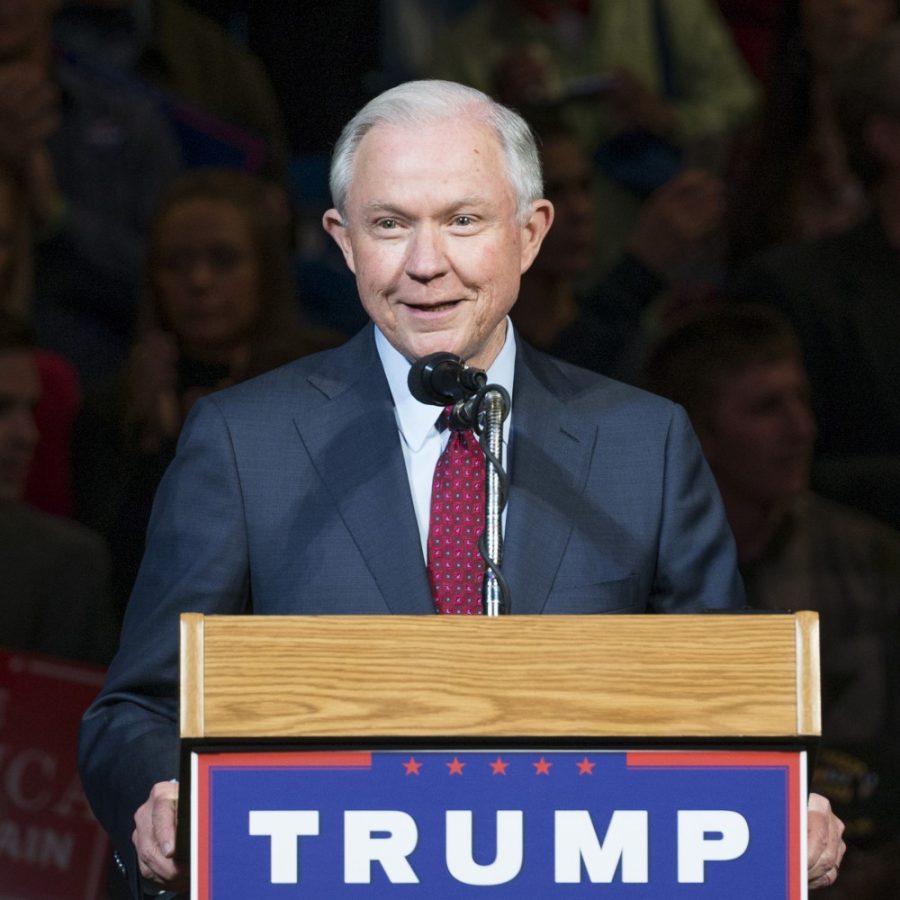As of Jan. 16, President-elect Donald Trump has submitted the names of 14 cabinet-level nominees to their relevant Senate committees to receive nomination hearings. He has yet to nominate an individual to serve as his Secretary of Agriculture.
Senate committees began nomination hearings Jan. 10. By a majority vote, these committees send Trump’s nominees to the Senate floor for a confirmation vote. All committees contain a Republican majority as a result of the Republican control of the Senate. None of Trump’s nominees can be confirmed until after his inauguration Jan. 20.
All Cabinet nominees undergo background checks by the Federal Bureau of Investigation and submit a financial disclosure statement to the Office of Government Ethics.
In a letter to Senate Minority Leader Chuck Schumer, Walter Shaub, Director of the Office of Government Ethics, expressed his concern over Trump nominees receiving Senate hearing without a completed ethics review.
“[This] has left some of the nominees with potentially unknown or unresolved ethics issues,” Shaub said.
RELATED: Column: Trump’s ‘greater,’ whiter America
In a joint statement released before the new year, the ranking Democrats on all 16 Senate committees stated Cabinet nominees should only proceed past committees if both a background check and ethics report are completed.
The Trump transition team released a statement criticizing this politicization of the nomination process. “Americans voted to drain the swamp,” the statement read, “This is a disservice to the country.”
Senate hearings will continue throughout the coming weeks. After confirmation, Trump’s Cabinet will help shape government policies including those concerning publicly-funded universities, like UA, and research funding.
Department of Education nominee: Betsy DeVos
Betsy DeVos, Trump’s nomination for Secretary of Education, advocated for school choice, the expansion of the voucher program and character schools as chairwomen of American Federation for Children.
“I believe every child, no matter their zip code or their parents’ jobs, deserves access to a quality education,” DeVos said. She supports high accountability and standards but opposes Common Core in favor of local control.

Under the Obama administration, the Department of Education introduced new regulations to shrink the for-profit college industry due to concerns their programs defrauded students.
DeVos has yet to take a public position on any policy concerning higher education, but her department has the power to regulate federal funding and rules for public institutions of higher education.
DeVos’s Senate hearings began on Jan. 17. During her first day of testimony, she said several statements causing lawmakers to pause, including advocating for guns in schools “to protect from potential grizzlies.”
DeVos also wouldn’t confirm she would enforce gainful employment regulations, which ensure educational institutions are providing quality educations to students, when pressed by Sen. Elizabeth Warren.
RELATED: Trump’s economic plans leave the future unclear for Southern Arizona
Attorney General nominee: Jeff Sessions
During his confirmation hearing, Jeff Sessions, Trump’s nominee for Attorney General, characterized DACA as constitutionally questionable and would have no issue overseeing the ending of policy which provides in-state tuition and temporary deportation relief for young migrants.
UA professors recently signed a letter in support of DACA students on campus.
The Arizona Board of Regents released a statement reading; “The board remains committed to affordable access to higher education for all eligible students. The board is also committed to compliance with state and federal law.”
The regents said that DACA students with employment authorization and state residency will continue to receive in-state tuition. If the government repeals DACA or prohibits in-state tuition for current DACA students, this policy could change.
Sessions was previously denied a federal judgeship under the Reagan administration due to concerns over alleged racially insensitive remarks he made while a U.S. Attorney for Alabama.

Sen. Cory Booker, speaking to the Senate Committee on the Judiciary, said: “Sen. Sessions has not demonstrated a commitment to a central requisite of the job–to aggressively pursue the congressional mandate of civil rights, equal rights and justice for all of our citizens.”
Booker broke Senate protocol by being the first to testify against the nomination of a fellow senator.
“I did not harbor the kind of animosities or race-based discrimination that I was accused of,” Sessions told the committee during his hearings. Arizona Sen. John McCain and Sen. Jeff Flake have both publicly endorsed Session’s nomination.
Previously, Sessions voiced criticism over the Individuals With Disabilities in Education Act, which provides special needs individuals appropriate classroom resources, arguing it results in impunity for children to disrupt classroom learning.
As Attorney General, Sessions will lead the Department of Justice’s prosecutions of higher education institutions failing to comply with federal law, either anti-discrimination provisions or otherwise.
Secretary of State nominee: Rex Tillerson
If confirmed, Rex Tillerson, Trump’s nominee for Secretary of State, will control the Bureau of Educational and Cultural Affairs, a subsidiary of the State Department. The State Department funds the Fulbright Scholarship Program and also oversees cultural-exchange programs for college students wishing to study abroad.
Tillerson, a former Exxon Mobil CEO, has been criticized for his close ties to Russia. He was previously awarded the “Order of Friendship” by Vladimir Putin.

During his committee hearing, Tillerson said, “Russia today poses a danger, but it is not unpredictable in advancing its own interests.” He also acknowledged their support of a Syrian regime which has violated the law of war.
In the face of conflict-of-interest concerns, Tillerson announced he would recuse himself from handling any business concerning his former employer Exxon for the period required by law: one year.
The Senate will continue to hold hearings on Trump’s nomination who, if confirmed, will shape federal policy and funding, directly affecting the UA and its students.
Follow Randall Eck on Twitter.









